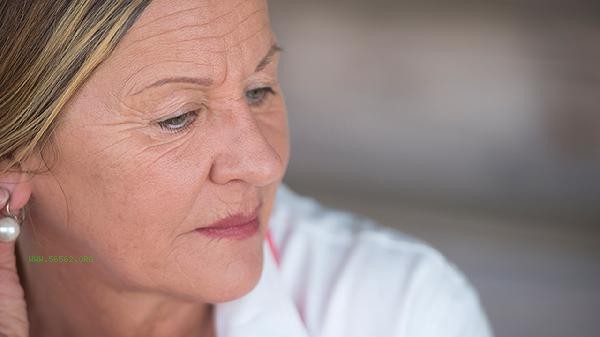Menopausal women can consume moderate amounts of soy products, deep-sea fish, whole grains, dark vegetables, dairy products, and other foods. They can also follow medical advice to take medications such as Kunbao pills, Gengnian An tablets, estradiol valerate tablets, progesterone capsules, and glutathione tablets. Menopause is a special stage of ovarian dysfunction in women, and dietary attention should be paid to calcium supplementation, intake of plant estrogens, and cardiovascular protection. Medications should be used under the guidance of a doctor.

1. Food
1. Soybean products
bean curd, soybean milk and other soybean foods contain rich isoflavones, whose structure is similar to estrogen, which helps alleviate menopausal symptoms such as hot flashes and night sweats. Soy protein can also help maintain muscle mass, and it is recommended to consume 30-50 grams of soybeans or equivalent products daily. People who are allergic to soybeans should avoid them.
2. Deep sea fish
Salmon, sardine, etc. are rich in Omega-3 fatty acids, which can reduce the inflammatory reaction in the body and improve mood fluctuations and joint discomfort. Eat 2-3 times a week, about 100 grams each time, and be careful to avoid high-temperature frying cooking methods.
3. Whole Grains
Whole grains such as oats and brown rice are rich in B vitamins and dietary fiber, which can stabilize blood sugar and improve intestinal function. The metabolism of menopausal women slows down, and replacing refined rice and flour with whole grains can prevent obesity. It is recommended to make up more than one-third of the total staple food.
4. Dark vegetables
Spinach, broccoli and other dark vegetables contain vitamin K and folate, which can help prevent osteoporosis and cardiovascular disease. Magnesium can regulate neurological function, and it is recommended to consume 300-500 grams per day. Pay attention to stir frying over high heat to preserve nutrients.
5. Dairy Products
Milk and yogurt provide easily absorbable calcium, with 300 milliliters per day meeting nearly half of calcium needs. Lactose intolerant individuals can choose low lactose products or cheese, combined with vitamin D supplements to promote calcium absorption for better results.

II. Drug
1. Kunbao Pill
traditional Chinese patent medicines and simple preparations contains privet, Eclipta, etc. It is suitable for climacteric syndrome of liver kidney yin deficiency type, and can improve dizziness, tinnitus, insomnia and dreaminess. During medication, avoid spicy food and suspend use when experiencing a cold or fever.
2. Gengnian An tablets
contain nourishing yin ingredients such as Rehmannia glutinosa and Ophiopogon japonicus, which have a relieving effect on hot flashes, sweating, irritability and irritability. People with spleen and stomach deficiency and cold may experience diarrhea, which requires the use of spleen strengthening drugs. The treatment course generally does not exceed 3 months.
3. Estradiol valerate tablets
are commonly used drugs in hormone replacement therapy, which can directly supplement estrogen and improve symptoms of urinary and reproductive tract atrophy. Those with a family history of breast cancer or a history of thrombosis should not be used, and the endometrial thickness should be monitored regularly.
4. Progesterone capsules
used in combination with estrogen can protect the endometrium, and when used alone, can help improve sleep disorders. Side effects such as dizziness and breast tenderness may occur, and driving or working at heights should be avoided during medication.
5. Guweisu tablets
are natural ingredients extracted from rice bran oil, which can regulate autonomic nervous system dysfunction and relieve palpitations and excessive sweating. Usually used as an adjuvant medication, long-term use requires attention to liver function monitoring.

Menopausal diet should control salt and caffeine intake to avoid exacerbating edema and insomnia. It is recommended to engage in moderate intensity exercises such as brisk walking and yoga 3-5 times a week, combined with abdominal breathing training to alleviate anxiety. Maintain regular sleep and social activities, and regularly undergo bone density and breast examinations. When symptoms are severe, seek medical attention promptly and do not adjust the dosage of hormone drugs on your own.




Comments (0)
Leave a Comment
No comments yet
Be the first to share your thoughts!